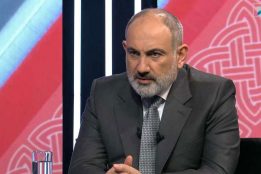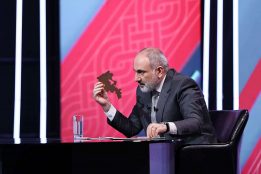
Viktor Friedmann in his article published in the Armenian weekly discusses Hungary’s move of extraditing Ramil Safarov to Azerbaijan, showing the moral aspect of the whole situation.
Viktor Friedmann is a PhD candidate in International Relations and European Studies at Central European University, Budapest (Hungary).
The full article is presented below:
Seldom do issues of foreign policy make it to the front pages of newspapers and political weeklies in Hungary unless they concern the millions of Hungarians living in the neighboring countries or can be put to advantage for the sake of domestic party politics. While many worldwide have been concerned about the potential consequences in the Caucasus of Hungary’s decision to hand over to Azerbaijan convicted murderer Ramil Safarov, it is now precisely a discussion of the government’s action and the lead-up to it that is uppermost in Hungarian circles.
Seen through the prism of Hungary’s deeply divided domestic politics, almost any issue is inevitably interpreted as either what supporters of the government see as part of the government’s “freedom fight”, or as what its opponents perceive as a new step in the dismantling of democracy and the building of what they call conservative Prime Minister Viktor Orbán’s “Viktatorship.”
Turning to oil- and cash-rich Azerbaijan and handing over Safarov can, indeed, be seen as a small step in Orbán’s policy of “Eastern opening” designed to enable Hungary to find the resources to shake off what he sees as the dictates of the EU and the IMF. The search for alternative economic and political partners is at the heart of Orbán’s grand political vision, one centred on a fight both against global financial capital and its use of state debt to rule over nations, and against previous leftist-socialist governments that, according to him, subserviently sold out the country to these international forces. Orbán’s stated goal, then, is to create the conditions for a Hungarian way of life that is freed thanks to domestic moral rejuvenation and the reassertion of national sovereignty.
Yet the government has done very little to defend the decision to hand over Safarov as an instance of shrewd foreign policy-making. Rather, it has from the outset adhered to the following three-fold strategy. It has downplayed the issue: the government “acknowledges the situation with calm and serenity” and Hungary can “handle each issue according to its weight,” Orbán said, four days after Safarov’s release. It has depoliticized it: the case is a dull, legal one solely grounded in following procedures specified in an international agreement, it argued over and again. Finally, it has stressed that it did everything according to the letter of said agreement, in complete good faith, and that any breach of the agreement should be imputed to the Azeri party.
More foreseeable has been the opposition’s reaction, for whom Orbán’s “freedom fight” is nothing but a continued effort at centralizing power in the hands of the government and the prime minister at the expense of democracy. It is not surprising, therefore, that the opposition has quickly jumped at the Azeri case and mobilized it as another proof of the government’s corrupt nature and incompetence, demanding, but not obtaining, the resignation of those responsible. Speaking on the day after Safarov’s return to Azerbaijan, green-liberal opposition party LMP branded the case as one of “either frightening dilettantism or a deal backed by money.”
In doing so, it captured the two main tenets of criticism offered by anti-government commentators. The case is the next step in the “twilight of the Foreign Affairs Ministry” signalling the “wrecking of diplomacy,” left-liberal Népszabadság Online wrote on 7 and 8 September respectively, pointing the responsibility squarely at Orbán’s close circle for taking over important decisions and disregarding the expertise and recommendations of the relevant ministries. A similar approach was taken up by influential political weekly HVG, who spoke of “alarming diplomatic ineptitude” in its lead article on 8 September.
At play too is the (so far unproven) assumption that Safarov’s transfer was linked to hoped-for future economic benefit from Azerbaijan, which critical commentators have taken as confirmation of, in the words of the LMP, the “moral nihilism” of both government and the prime minister.
Spanning the political divide, however, commentators agree that it was, simply, morally wrong to hand over one convicted of such a brutal murder to a country where both act and person are glorified, and that no political or economic factor can change this simple truth. Such agreement flies in the face of the government’s attempt to portray the issue as a legal one outside the realm of morality.
The government “allowed the country’s honour to be sold for 30 pieces of silver”, former Socialist Prime Minister Ferenc Gyurcsány said on one side. On the other, daily Magyar Nemzet, that otherwise closely toes the governing party-line, cautiously stated in its 5 September lead article that the “unfortunate case,” although primarily Azerbaijan’s fault, “raises certain moral questions”. More confrontationally, influential conservative journalist Zsolt Bayer lamented in the strongly rightist Magyar Hírlap on 3 September that Hungary has “no moral truth” in this case and that the Armenian nation was undeservedly “spat in the face.” What is at stake, he argued, is what a country with the size and influence of Hungary should treasure the most: honour. If Safarov’s hand-over might have been useful for widening Hungary’s sphere of manoeuvre, he implied, it undermined the eventual goal it meant to serve, that of the moral restoration of the nation. Orbán’s claim in Parliament this Monday that the decision was “just” and met ethical and moral standards, rings rather hollow in the face of such a moral issue cutting to the heart of his own vision for the country.
Putting aside such isolated claims, the government rightly perceives that the decision cannot be defended on political and moral grounds. Instead, it seems to have decided to wait out until the scandal subsides. This strategy is likely to be successful: the case is, after all, still a foreign policy issue and now mostly out of Hungary’s hands as far as Safarov’s future is concerned. For the majority of voters, the stain on Hungary’s honour will probably be quickly forgotten as fresh waves of divisive political and economic reforms come to the fore on the domestic political agenda. The government knows that further pressure from the opposition or by Armenia is likely to reunite conservative voters in defence of its nationalist vision. There is one legacy, however, that will be difficult to cast aside: it will be all but impossible for the government to push ahead economic cooperation with Azerbaijan without inviting the accusation that it is undermining Hungary’s honour and exposing itself again to cross-partisan moral indignation.




































